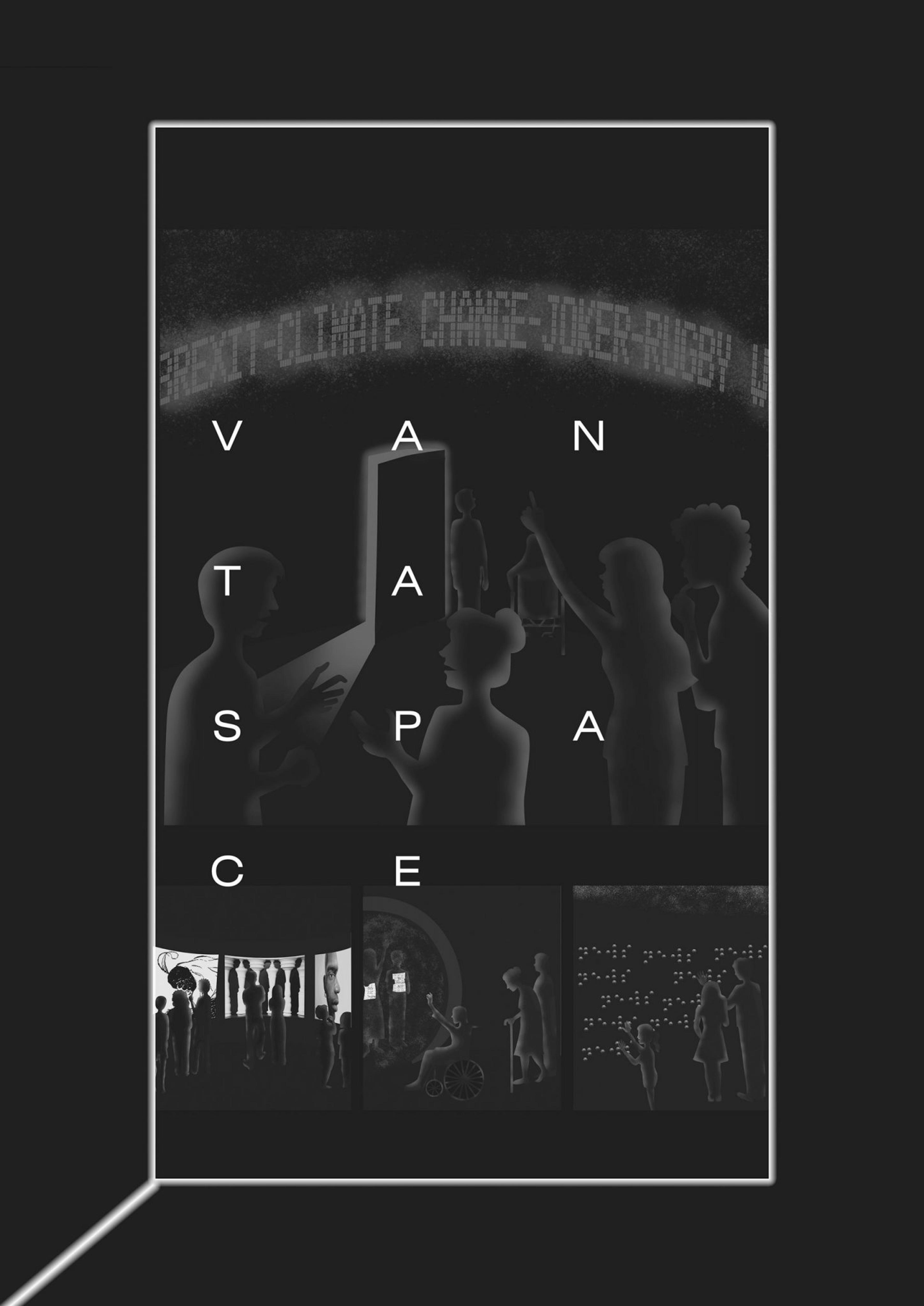News
Anglia Ruskin University
Ana Canelas, Ngonidzashe Nyagura, Brundha Pathmanathan, Abdullah Shabab
In Scandinavian languages, ‘Vanta’ means the lack of something; in science it is the darkest material on Earth. In the context of our proposal, it is both – the lack of boundaries achieved by materiality.
Darkness is synonymous with fear, but our proposal, Vanta Space, envisions it as a safe haven from loneliness and a threshold to social life. Interior spaces are configured in a maze-like way to let users lose themselves in the space, allowing them to communicate and learn without the fear of being judged.
The idea is to erase the boundaries between ‘self’ and ‘other’ created by light. It is a space where people can gather, socialise and discuss almost everything. Users can move from one space to another by participating in different activities, each designed to bring people together, communicate and learn. This gives them the opportunity to leave the space having learned something new and made new friends.
On top is a roof garden floating on absolute darkness, echoing the suspended gardens of Babylon. Friendships that grow in Vanta are commemorated here with plants, in a similar tradition to the love locks on the Pont des Arts bridge in Paris.
